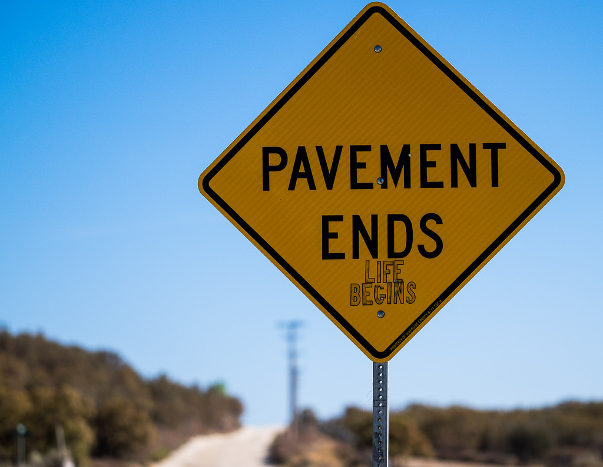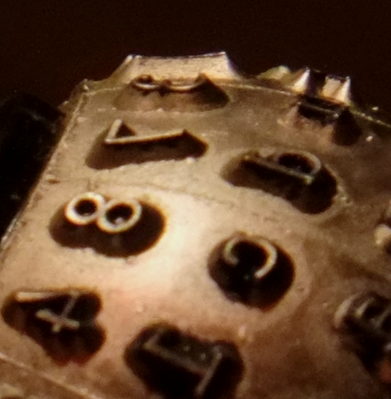I've taken emtricitabine+tenofovir disoproxil fumarate (two antiviral drugs
in one tablet, taken once a day) for about nine years now. Sold in the USA
under the brand name Truvada, it costs $50 a tablet. It sells for
one dollar a tablet in India and even less in some other countries.
Tenofovir was invented at a Czech university in 1984. It was first shown to be effective against HIV when administered by injection. Chemists then tweaked the molecule slightly to made it suitable for oral administration. Gilead Sciences, a drug company based in California, applied for a US patent on the tweaked version (TDF: tenofovir disoproxil fumarate) around 1997. Their first patent application was denied because nothing about it was new: tenofovir was a known drug and the chemistry of adapting it for oral administration was standard practice.
Gilead applied again, this time noting that TDF had unexpected properties (it was more stable when subjected to humidity and heat); the patent was granted. On that fine a point hung the difference between a patent that would soon run out and one that Gilead could milk for another 20 years. In the pharma business, reformulating drugs to extend patents is called evergreening.
TDF became one of the drugs of choice for treating HIV and has made Gilead a lot of money. But it's not perfect; some patients have side effects. Gilead went back to work and devised a differently-tweaked version: TAF (tenofovir alafenamide). TAF looked promising but Gilead shelved all development on it in 2004. Hundreds of thousands of patients might have benefitted from early availability of TAF but Gilead was in no rush because their patent on the old version (TDF) wasn't expiring soon.
Gilead waited until 2011 to resume development of TAF. I enrolled in a study two years ago because my insurance situation was unclear and the study would provide the drug for free for two years.
The study has finished, TAF appears to indeed have fewer side effects, and combo tablets containing it have gotten FDA approval. Gilead is eager to get patients to switch over and gave me a coupon that pays for insurance copayments I'd incur for the drug. That lands me in the middle of a contentious issue in healthcare economics.
Were I covered by a federal insurance program, offering me a copayment coupon would violate an anti‑kickback statute, 42 USC § 1320a‑7b(b). What Gilead has done in my case (private insurance) is legal but that doesn't mean it's ethical. Copayments are an incentive to choose services and products carefully; if they're subverted, patients may tend to act as if medicine grew on trees. Copayment coupons are a good deal from a patient's point of view but can lead to excessive money spent by society as a whole.
Andrew Sullivan used to defend the pharmaceutical industry's business model on his blog, noting that it provided the drugs that were keeping him alive. If the choice is between the USA and the Soviet Union, of course I'd take the former. But that doesn't mean the system we have is anything near optimal. Hofstra University hosted a debate this evening.
I grew up a few towns over from Hofstra and I'm grateful for how, back in the 1970s, they let high school students use their computer equipment. Some of the first practice I got in programming was at Hofstra (on a Univac machine that implemented the IBM 360 instruction set).
A friend once asked how long it took to bike ride to Hofstra. Another friend and I answered in unison, "Seventeen minutes." We had never ridden there together nor compared notes about the ride.
Today's
op‑ed by David Brooks is notable for this bewildering
train wreck of a sentence:


Tenofovir was invented at a Czech university in 1984. It was first shown to be effective against HIV when administered by injection. Chemists then tweaked the molecule slightly to made it suitable for oral administration. Gilead Sciences, a drug company based in California, applied for a US patent on the tweaked version (TDF: tenofovir disoproxil fumarate) around 1997. Their first patent application was denied because nothing about it was new: tenofovir was a known drug and the chemistry of adapting it for oral administration was standard practice.
Gilead applied again, this time noting that TDF had unexpected properties (it was more stable when subjected to humidity and heat); the patent was granted. On that fine a point hung the difference between a patent that would soon run out and one that Gilead could milk for another 20 years. In the pharma business, reformulating drugs to extend patents is called evergreening.
TDF became one of the drugs of choice for treating HIV and has made Gilead a lot of money. But it's not perfect; some patients have side effects. Gilead went back to work and devised a differently-tweaked version: TAF (tenofovir alafenamide). TAF looked promising but Gilead shelved all development on it in 2004. Hundreds of thousands of patients might have benefitted from early availability of TAF but Gilead was in no rush because their patent on the old version (TDF) wasn't expiring soon.
Gilead waited until 2011 to resume development of TAF. I enrolled in a study two years ago because my insurance situation was unclear and the study would provide the drug for free for two years.
The study has finished, TAF appears to indeed have fewer side effects, and combo tablets containing it have gotten FDA approval. Gilead is eager to get patients to switch over and gave me a coupon that pays for insurance copayments I'd incur for the drug. That lands me in the middle of a contentious issue in healthcare economics.
Were I covered by a federal insurance program, offering me a copayment coupon would violate an anti‑kickback statute, 42 USC § 1320a‑7b(b). What Gilead has done in my case (private insurance) is legal but that doesn't mean it's ethical. Copayments are an incentive to choose services and products carefully; if they're subverted, patients may tend to act as if medicine grew on trees. Copayment coupons are a good deal from a patient's point of view but can lead to excessive money spent by society as a whole.
Andrew Sullivan used to defend the pharmaceutical industry's business model on his blog, noting that it provided the drugs that were keeping him alive. If the choice is between the USA and the Soviet Union, of course I'd take the former. But that doesn't mean the system we have is anything near optimal. Hofstra University hosted a debate this evening.
I grew up a few towns over from Hofstra and I'm grateful for how, back in the 1970s, they let high school students use their computer equipment. Some of the first practice I got in programming was at Hofstra (on a Univac machine that implemented the IBM 360 instruction set).
A friend once asked how long it took to bike ride to Hofstra. Another friend and I answered in unison, "Seventeen minutes." We had never ridden there together nor compared notes about the ride.
 Earlier
this month, I brought home a broken IBM Selectric typewriter that someone
was throwing out. I wanted the typeball but I thought I'd take
the whole thing to see what other part in it I might want, which was
kind of silly because I took a Selectric apart about 15 years ago and
haven't done anything with the handful of parts I saved from it. Earlier
this month, I brought home a broken IBM Selectric typewriter that someone
was throwing out. I wanted the typeball but I thought I'd take
the whole thing to see what other part in it I might want, which was
kind of silly because I took a Selectric apart about 15 years ago and
haven't done anything with the handful of parts I saved from it.
I took the typewriter apart yesterday and got a gear from it that's just what I needed for a project I've been wanting to build. I'd bought a motor for the project on Monday with no plan for where to get a gear the right shape to mesh with it. My favorite thing about the typeballs is how the face of each character is curved to match the cylindrical shape of the platen. |
We are animals who can't flourish unless we can't get along without one another.Setting the botched mode of expression aside, the sentiment that people need one another (and that some people feel a need to point this out) seems to be this morning's theme. Email from a friend a few hours ago:
B. says she hopes you are well and reasonably happy. She also hopes you find someone. I told her you weren't looking for that but she hopes that you've changed your mind.The suggestion that I find a boyfriend irks me less than it used to. I recognize that it's offered in a spirit of goodwill. I still think it would be nice if people better understood what it's like to prefer to be single but I've come to realize that's a tall order. In any case, given the choice between unsolicited advice to find a boyfriend and unsolicited advice to find God, I'll take the former any day. From the web site of Dalibor Farny, who manufactures Nixie tubes:
I love old things. Old cars, old houses, old electronics. I am fascinated by the fact that those things have survived tens, hundreds of years and some are still serving their original purpose while people who made them passed away long time ago. And this is the key idea of my business—I want to produce robust, durable objects that people will cherish long time after I won't be there!This month I made some items out of local wood to give to a friend. When I was ready to bring them over, my friend said he wouldn't be home until later in the week. This sequence of texts ensued:


photo © 2016 Alan P. Smallbone
used here by kind permission
used here by kind permission